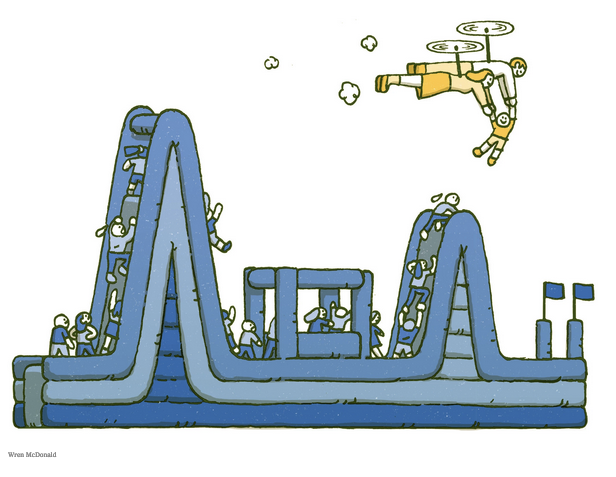I recently met a Texan couple whose son was still in diapers. They were angling to get him into a preschool that feeds into a private preparatory school with a great record for college admissions.
The couple were ambivalent about doing this. They were from immigrant and working-class backgrounds, and had thrived in public schools. In theory, they believed that all children should have an equal chance to succeed. But I suspected that if they got their son a spot in the preschool, they’d take it. These days, such chances are hard to pass up.
It’s a familiar story. Psychologists, sociologists and journalists have spent more than a decade diagnosing and critiquing the habits of “helicopter parents” and their school obsessions. They insist that hyper-parenting backfires — creating a generation of stressed-out kids who can’t function alone. Parents themselves alternate between feeling guilty, panicked and ridiculous.
But new research shows that in our unequal era, this kind of parenting brings life-changing benefits. That’s the message of the book “Love, Money and Parenting: How Economics Explains the Way We Raise Our Kids,” by the economists Matthias Doepke of Northwestern University and Fabrizio Zilibotti of Yale. It’s true that high-octane, hardworking child-rearing has some pointless excesses, and it doesn’t spark joy for parents. But done right, it works for kids, not just in the United States but in rich countries around the world.




